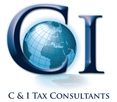San Diego Business Makes Empassioned Pitch for Enterprise Zones
Monday, December 21st, 2009 | Enterprise ZonesHere’s an article from the San Diego Union-Tribune:
Don’t pare enterprise zones
BY DAN DUFRESNE
THURSDAY, DECEMBER 17, 2009 AT MIDNIGHT
The state’s nonpartisan Legislative Analysts’ Office (LAO) just released some staggering figures: our state must address a deficit of $20.7 billion between now and the time the Legislature enacts a 2010‑11 budget. What is perhaps even more frightening is the LAO prediction that California will have a deficit of around $20 billion each year for the next several years.
In the same report, the LAO also states that unemployment is expected to fall slowly as the unemployment rate usually peaks several quarters after a recession ends. “By 2015, unemployment is projected to be down to 7.3 percent – well above the pre-recession level,” the report says.
In the face of this ongoing fiscal crisis, the LAO recommends that lawmakers look for new sources of revenue and consider ending certain tax breaks for businesses.
Most unwisely, this includes the suggestion to reduce or eliminate the Enterprise Zone Program.
The mere suggestion of cutting back California’s only economic development tool when unemployment is not expected to drop for several years does not make any sense. The reality is that California’s economy will not recover on its own. Enterprise zones were created to revitalize distressed communities, entice business development in California and create jobs. The LAO’s own predictions about the state’s continued economic woes only highlight the need for the Enterprise Zone Program now more than ever.
In fact, the program is ultimately revenue generating as it creates more taxpayers – corporate and individual – paying more money back to the state. This is the type of program that will help get our state back on track and has already proven to reduce unemployment and poverty levels.
Other states such as New Jersey, Massachusetts and Oklahoma have embraced economic development in the midst of the recession. For example, the New Jersey Legislature enacted legislation creating a new $3,000 grant for each job created in that state during 2009, as well as another grant to offset 7 percent of new investment in plant and equipment costs. Massachusetts created a package of new programs intended to attract new investment from life sciences companies and Oklahoma is encouraging new higher wage jobs by offering a 6 percent incentive payment on payroll for new jobs that pay 150 percent of a company’s current average wage.
California needs to be able to compete with these and other states. Now is time to bolster our economic development initiatives and encourage participation in the Enterprise Zone Program so we can turn our state’s economy around.
Epsilon Systems Solutions Inc., which is headquartered in San Diego, has two locations in the San Diego Regional Enterprise Zone. Epsilon Systems’ National City location employs approximately 90 people and the Otay Mesa facility has 10 employees. Most of Epsilon Systems’ work is focused on offering technical support for government agencies such as the Department of Defense, Department of Energy and the Department of Homeland Security. More than 90 percent of the work performed at Epsilon Systems’ National City and Otay Mesa locations is performed by those in good-paying blue collar jobs, ranging from pipe fitting to welding to general laborer duties.
With a population of just over 60,000 people, National City has been especially impacted by this recession, with a 19.4 percent unemployment rate as of September 2009. Epsilon Systems – a growing company – just hired several people in the last month and a significant portion of them work at the company’s National City facility. Over the past few years, the company has hired a number of Vietnam veterans and recently discharged veterans, providing opportunities for those who often face barriers to employment.
The money that our company has saved by participating in the Enterprise Zone Program has allowed us to offer additional training for employees, hire more people, provide top-notch benefits and expand the National City facility.
While other companies are laying off workers or closing their doors, Epsilon Systems has remained competitive and continues to succeed in California’s depressed economy – and this is due, in part, to the Enterprise Zone Program’s valuable tools for business growth. The Enterprise Zone Program is crucial for businesses and residents not just in the San Diego area, but throughout California. It’s a program that California cannot afford to be without.
Dufresne is director of government relations for Epsilon Systems Solutions Inc.

 EXCISE TAX REFUND
EXCISE TAX REFUND